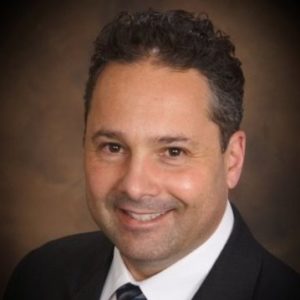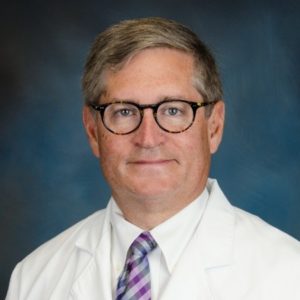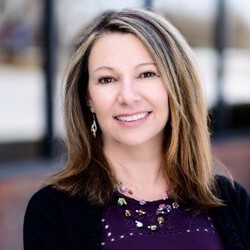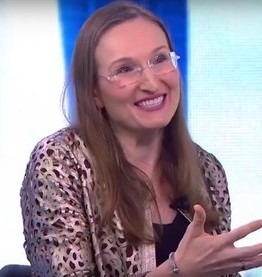The Post-Vaccine Senior Care Industry: What Changes Lie Ahead

Russell R. Barksdale, Jr., MPA/MHA, FACHE, president and CEO, Waveny LifeCare Network
The availability of COVID-19 vaccines has brought hope to many senior care facilities. With social distancing and limited visitation being particularly hard on residents, vaccination offers increased protection and, perhaps, the ability to participate in some activities that had been previously restricted. While more and more senior care facilities reach greater vaccination numbers in residents and staff, the steps that those facilities take next may differ.
We spoke with representatives from two senior care facilities about their post-vaccination plans.
Waveny LifeCare Network
New Canaan, Connecticut
Russell R. Barksdale, Jr., MPA/MHA, FACHE, President and CEO of Waveny LifeCare Network explained that even as staff and residents are vaccinated, the facility can’t relax its protocols. Among other items, those protocols include:
- A full infectious disease program that includes screening all building entrants for symptoms
- Providing staff with appropriate personal protective equipment
- Re-educating staff and visitors on the appropriate way to don and remove PPE to minimize exposure risk
- Virtual visitation for family and friends
- Quarantining new admissions for 14 days
Early in December of 2020, the facility accessed the Pfizer vaccines for its residents, patients, clients, and staff. “Healthcare providers and our senior community were given the highest priority by the Governor of Connecticut, and we were fortunate to contract through a federal agreement to provide the first and second Pfizer vaccine,” explains Barksdale.
“To date, we are proud that 95 plus percent of our residents and patients, who were most at risk, have received their first and second inoculation and all new admissions are receiving their vaccines here on campus if they have not been vaccinated previously.” Barksdale estimates that 60% of staff have received both doses.
While Waveny LifeCare Network has made great progress in ensuring staff and residents are vaccinated, the facility remains highly vigilant in preventing COVID-19 spread. “We know that being fully vaccinated does not prevent an individual from catching the novel virus nor developing COVID. We have found that those that have been inflicted after being vaccinated; however, for the most part have relatively mild symptoms. We also know that the number of variants of the virus have dramatically increased in our surrounding communities, specifically B.1.1.7 or the commonly referred to United Kingdom variant,” explains Barksdale.
“For this reason, we cannot relax our protocols and will continue our infectious disease practices without exception. We have not experienced within our organization the second or third wave due to our complete adherence to our practices and protocols.”
The facility has opened up outdoor and indoor visitation for families. Using positive air, HEPA filtered meeting rooms, the facility has created safe isolation rooms near its two major entrances to allow for visitation. “Families have been extraordinarily patient and understanding, we communicate we them frequently, but we understand that COVID fatigue is a real challenge and people in our outside community yearn for a return to normalcy. We are hoping that with increased vaccination rates and compliance, our surrounding community can prevent the fourth wave from occurring and accelerate a return to what was considered normal before COVID,” says Barksdale.
The Pillars of Shorewood Landing
Shorewood, Minnesota

Griffin Myslivecek, executive director, The Pillars of Shorewood Landing
Griffin Myslivecek, Executive Director of The Pillars of Shorewood Landing, a senior living community, explains that the community made significant changes to help protect residents early on in the pandemic. The community started delivering meals to residents on March 19, 2020, and didn’t reopen the dining room until August 2020.
“Innovation was alive and well and demonstrated through several hallway activities such as Bingo, exercise, worship, and dance parties,” Myslivecek explains. “Our alcohol budget went up a bit as it did in several other residential homes, since happy hour was on wheels and went door-to-door throughout the pandemic.
The community also performed daily oxygen and temperature checks for residents. The process allowed leadership to check in with residents in their apartments, which provided a sense of security during the time when families couldn’t visit. The community eventually opened up to outdoor visitation and essential care indoor visits.
To date, 100% of the community’s residents are vaccinated. “At this point, we are open to visitation, lunch and dinner dining, and group activities with social distancing and masks,” says Myslivecek. “Residents are still subject to a 14-day quarantine if they leave for a non-essential medical reason or are gone overnight for any reason.”
All changes are governed by the Minnesota Department of Health (MDH), which doesn’t always loosen up restrictions as quickly as the CDC does. “The 14-day quarantine is the hardest on our residents,” says Myslivecek. “It’s the restriction that we are really excited to change once the MDH does.”
While the prospect of changing some of these restrictions is exciting, Myslivecek realizes that changes might be short-lived. “COVID has taught us that the rules can change at the drop of a time,” he says. In the face of that uncertainty, the facility is piloting a new communication device to help residents stay connected with family and friends. The device, CAAVO, lets residents communicate through their TV, and families will eventually be able to converse with residents through an app, streaming a feed of a special event like a dance recital or grandchild’s baseball game. The device, which was created by the developers of X-Box, is brand-new, and The Pillars of Shorewood Landing is the first community in the world to use it.
Looking Forward
The COVID-19 vaccines increase senior care resident and staff safety, and are one more tool in fighting COVID-19. While it may be possible to loosen some restrictions, these facilities demonstrate the importance of continued vigilance and precautions in the coming months.

Paige Cerulli is a contributing writer to i Advance Senior Care.
Related Articles
Topics: Activities , Featured Articles , Infection control , Information Technology , Leadership , Risk Management , Technology & IT











